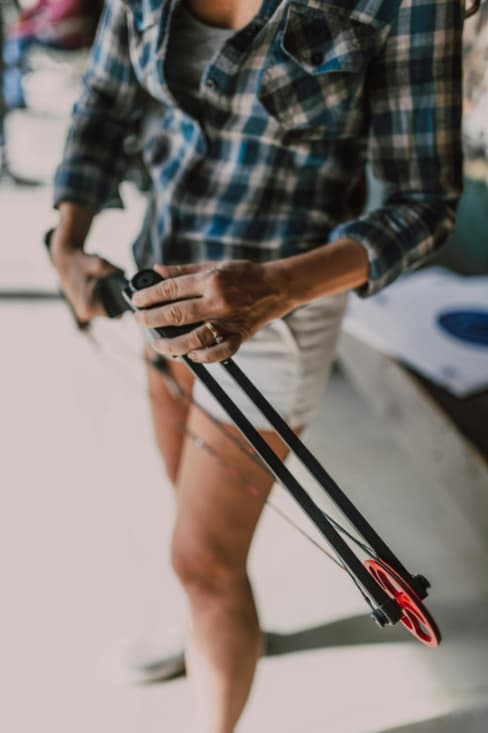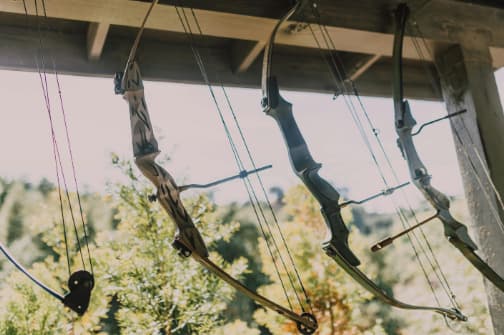Sport shooting is a discipline that requires not only skill and precision but also considerable financial support and a strong network. For many athletes, the journey from amateur competitions to the professional level is heavily influenced by the support they receive from sponsors and shooting clubs. These relationships are vital for providing the resources, training, and opportunities needed to excel in the sport.
While natural talent and hard work are essential, many athletes face challenges in gaining exposure and securing the resources needed for high-level competition. This is where sponsors and clubs come into play. They act as enablers, giving shooters access to equipment, funding, and training facilities. Many sport shooters even seek guidance from professional advisors or a Ghostwriter to help with strategic planning and promotional efforts. With the right support system, the path to a successful career becomes more achievable. In this article, we will explore how these sponsorships and club memberships shape a sport shooter’s career, and why they are indispensable for long-term success.
Why Sponsorship Matters in Sport Shooting
Sport shooting, like many competitive sports, demands significant investment in both time and resources. Professional shooters need top-tier firearms, ammunition, and accessories, which can be prohibitively expensive for many athletes. This is where sponsorship comes into play. Sponsors offer financial support, equipment, and even travel expenses, allowing shooters to focus on training and competition without the constant worry of financial burdens.
Financial Support
The cost of competing at a high level in sport shooting is substantial. From purchasing high-quality firearms and custom gear to traveling for international competitions, the expenses can quickly add up. Sponsors step in to relieve some of this financial pressure. With adequate funding, shooters can afford to participate in more competitions, gain more exposure, and hone their skills in diverse environments.
For example, major firearms manufacturers often sponsor athletes to promote their brands. In return, shooters endorse the sponsor’s products, wearing branded gear during competitions and promoting them on social media. This mutually beneficial relationship helps both parties thrive—shooters gain the financial backing they need, and sponsors get exposure to a dedicated and growing audience.
Equipment and Gear
Beyond financial assistance, many sponsors provide shooters with the necessary equipment to compete at the highest level. Custom firearms, optics, ammunition, and protective gear are essential components for a successful career in sport shooting. Sponsors often supply athletes with these items, ensuring they have the best tools to perform their best.
In some cases, sponsors work closely with shooters to develop new products. This allows companies to gain insights from professional athletes and, in turn, offer better products to the wider market. Such partnerships are invaluable not only for the athlete but also for the advancement of the sport as a whole.
Access to Exclusive Training Opportunities
Many sponsors also have access to elite training facilities and world-class coaches, providing shooters with opportunities they might not otherwise have. Sponsored athletes often receive invitations to training camps and clinics that are not available to the general public. These opportunities allow shooters to learn from the best in the business, improving their technique and gaining insights that can only be acquired through high-level training.
For instance, some sponsors offer access to private shooting ranges where athletes can practice without distractions. This can be particularly beneficial in the lead-up to major competitions, where focused, high-quality training is essential.
The Importance of Shooting Clubs in a Shooter’s Career
Shooting clubs are another critical aspect of a sport shooter’s development. These clubs provide the foundation for athletes to grow, offering access to facilities, coaching, and a supportive community. For many shooters, clubs are the first step in their journey toward a professional career.
Community and Support
One of the key benefits of joining a shooting club is the sense of community it provides. Shooting can be an isolating sport, with much of the training done individually. However, clubs offer a network of like-minded individuals who share a passion for the sport. This community can be a tremendous source of support, providing encouragement and advice as shooters work to improve their skills.
Furthermore, clubs often host internal competitions, giving members a chance to gain experience in a competitive environment before stepping onto the larger stage. This experience is invaluable, as it helps shooters develop the mental toughness required for high-level competition.
Coaching and Development
Another significant benefit of joining a shooting club is access to coaching. Many clubs employ experienced coaches who can offer personalized guidance and instruction. These coaches often have years of experience in competitive shooting and can provide valuable insights into technique, strategy, and mental preparation.
In addition to formal coaching, clubs often have more experienced members who are willing to mentor newer shooters. This mentorship can be an essential part of a shooter’s development, providing real-world advice and tips that cannot be learned from textbooks or online tutorials.
Facilities and Resources
Most shooting clubs have their own ranges, giving members a place to practice regularly. For many shooters, having access to a local range is crucial for consistent practice, as not all athletes can afford private facilities. Additionally, clubs often have relationships with suppliers, allowing members to purchase ammunition and gear at discounted rates.
Some clubs also have specialized equipment that members can use, such as high-end firearms and training tools. This access to resources can make a significant difference, particularly for shooters who are just starting and may not yet have the financial means to invest in top-tier equipment.
Networking Opportunities
Shooting clubs also offer valuable networking opportunities. Many professional shooters started their careers through connections made at local clubs. By participating in club activities, shooters can meet individuals who may be able to assist them in their career, whether through sponsorship, mentorship, or job opportunities within the sport.
Clubs often have relationships with larger organizations, such as national shooting federations, which can open doors to regional and international competitions. This exposure is critical for shooters looking to make a name for themselves and attract potential sponsors.
How to Attract Sponsors: Building a Brand as a Sport Shooter
Attracting sponsors is not just about being a good shooter—it’s about building a brand. Sponsors look for athletes who can represent their brand positively and reach a large audience. This means shooters need to be more than just skilled athletes; they need to be marketable.
Developing a Social Media Presence
In today’s digital age, having a strong social media presence is essential for attracting sponsors. Shooters who actively engage with their audience on platforms like Instagram, Facebook, and YouTube are more likely to catch the attention of potential sponsors. By posting regular updates on competitions, training sessions, and equipment, shooters can build a following and demonstrate their value as a brand ambassador.
Showcasing Results and Achievements
Sponsors want to back winners. Consistently performing well in competitions and showcasing these results is crucial for attracting sponsorship. Shooters should regularly update their followers on their achievements, whether it’s placing in a local competition or qualifying for a national team.
Highlighting achievements on a personal website or portfolio is another effective way to showcase talent. Having a professional, well-designed site that includes information about competitions, results, and media appearances can make a shooter more appealing to potential sponsors.
Networking and Building Relationships
In addition to maintaining a strong online presence, shooters should actively network within the sport. Attending competitions, industry events, and trade shows can provide opportunities to meet potential sponsors face-to-face. Building relationships within the industry is critical, as sponsorship deals are often based on personal connections.
Shooters should also consider reaching out to companies directly. A well-crafted sponsorship proposal that highlights an athlete’s achievements, goals, and plans for future growth can be an effective way to secure sponsorship. Including data on social media following, media appearances, and competition results can further strengthen the proposal.
Challenges of Securing Sponsorships in Sport Shooting

While sponsorships offer tremendous benefits, securing them is not always easy. Sport shooting is a niche sport, and not all companies are willing to invest in it. Shooters must work hard to prove their value to potential sponsors.
Niche Audience
Sport shooting does not have the mass appeal of sports like soccer or basketball, which can make it more difficult to attract mainstream sponsors. Companies looking for a broad audience may be hesitant to invest in shooting sports, which typically appeal to a more specialized, niche audience.
However, this can also be an advantage. Companies that cater to the shooting sports industry—such as firearms manufacturers, optics companies, and gear suppliers—are more likely to invest in sponsorship deals. Shooters should focus their efforts on these industries, where there is a stronger alignment between the athlete’s sport and the sponsor’s products.
Balancing Personal Values and Sponsor Expectations
Another challenge for shooters is balancing their personal values with sponsor expectations. Not all sponsorship deals are created equally, and some may require shooters to promote products or brands that don’t align with their personal beliefs or the image they wish to project.
It’s essential for shooters to carefully vet potential sponsors and ensure that their values align. Long-term, mutually beneficial relationships are built on trust and shared goals, so it’s important to avoid sponsorship deals that could create conflicts of interest.
Conclusion
Sponsors and shooting clubs play a pivotal role in the career of a sport shooter. From providing financial support and equipment to offering access to world-class coaching and facilities, these relationships are essential for success in the sport. Shooters who invest in building strong connections with sponsors and clubs are more likely to advance their careers and achieve their goals.
Ultimately, sponsorships and club memberships provide the foundation for shooters to reach the highest levels of competition. By working hard, building a personal brand, and seeking out opportunities to connect with industry leaders, athletes can secure the support they need to thrive in the world of sport shooting.
